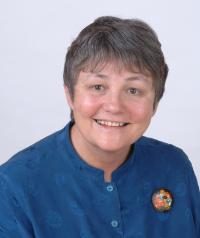Cultures on different page when it comes to 'informed consent'
Published on 19 November, 2008
A research study has shown a considerable cultural difference between the beliefs of traditional Aboriginal and Western people in regards to ‘informed consent' for medical procedures.
Senior Research Fellow with the International Program of Psycho-Social Health Research (a research body of CQUniversity Australia) Dr Pam Mcgrath said the differing perspectives and cultural practices translate into major concerns that impact on the practice of obtaining consent for medical procedures.

Dr Pam McGrathThe findings have been reached from qualitative interviews conducted with 72 participants including Indigenous patients, their carers, Aboriginal health workers, health professionals and interpreters from rural and remote areas of the Northern Territory.
The study found that for traditional Indigenous people there is a cultural need for consent to come from the ‘right' person within the network of kinship and community relationships, not necessarily solely the patient, as in Western medicine.
"Disrespect for such traditional processes can lead to ‘payback' for the ill Indigenous person or their relatives, as well as considerable anger from family members," Dr McGrath explained.
The emphasis on immediacy in relation to obtaining consent also conflicts with the timing needed for community consent.
"The study also revealed that because of the differing culture understandings of health and illness held by Indigenous peoples, it may be difficult to relate to the associated consequences and distress associated with many treatments."
"The consent process is further compromised by language barriers when Indigenous people are not fully informed, in their own language, about the potential benefits and harms of the intervention offered."
Dr McGrath said the findings from this research indicate the importance of providing a culturally appropriate means of obtaining informed consent for Indigenous patients in rural and remote areas.

